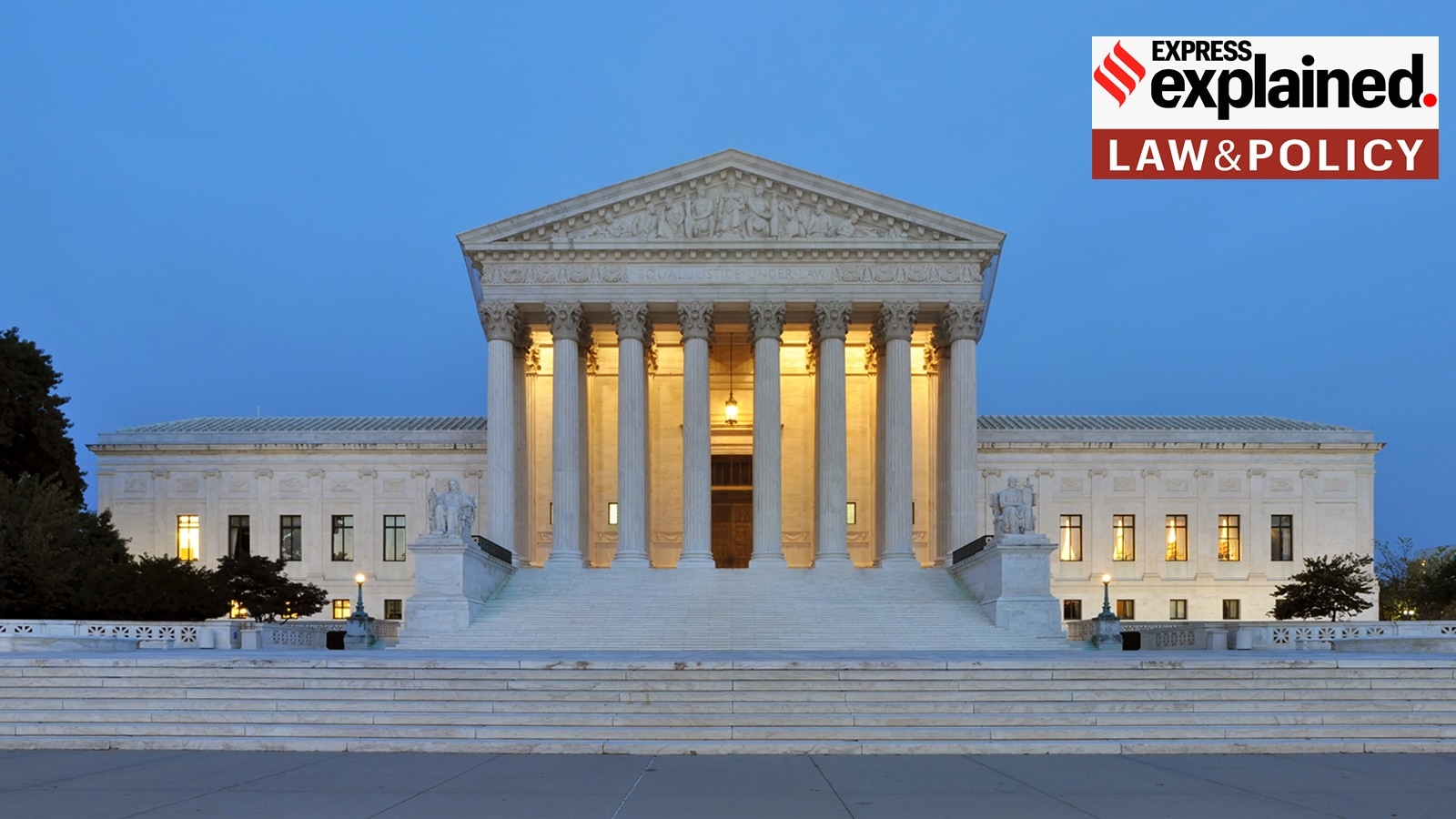With conversion therapy now before US Supreme Court, how courts have differed on banning it
Conversion therapy refers to psychological or behavioural interventions aimed at changing a person’s sexual orientation or gender identity.
 Over the past decade, more than 20 US states, including Colorado, have enacted laws prohibiting licensed professionals from offering conversion therapy to minors. (Wikimedia Commons)
Over the past decade, more than 20 US states, including Colorado, have enacted laws prohibiting licensed professionals from offering conversion therapy to minors. (Wikimedia Commons)The United States Supreme Court this week began hearing arguments in a case that could shape the extent to which states can regulate conversations between licensed therapists and their clients, and determine the future of so-called “conversion therapy”.
The dispute concerns a 2019 law in the state of Colorado, which bans conversion therapy for minors. The term refers to interventions attempted at changing a person’s sexual orientation or gender identity.
Chiles v Salazar, the current case, challenges whether the ban violates the constitutional right to free speech under the First Amendment to the US Constitution. Essentially, the court will decide whether the law regulates speech, which receives high constitutional protection, or professional conduct, which states have broader authority to regulate.
What is conversion therapy?
Conversion therapy refers to psychological or behavioural interventions aimed at changing a person’s sexual orientation or gender identity. Historically, it includes coercive or aversive methods such as electric shocks, deprivation, and forced institutionalisation.
Major medical and psychiatric associations in the US have rejected these practices. The American Medical Association has previously stated that “Underlying these techniques are the assumptions that homosexuality and gender identity are mental disorders and that sexual orientation and gender identity can be changed. These assumptions are not based on medical and scientific evidence.”
Such “therapy” can also be harmful, especially for minors. Research has linked it with increased depression, anxiety and suicide among young people.
Over the past decade, more than 20 US states, including Colorado, have enacted laws prohibiting licensed professionals from offering conversion therapy to minors. However, these laws do not apply to religious leaders or unlicensed counsellors. Even as conversion therapy is increasingly being discredited, it is part of the wider cultural debate in the US between those seeking to advance LGBTQ rights and conservative or religious groups.
What does the Colorado law say?
The Minor Conversion Therapy Law (MCTL) was passed in 2019. It defines conversion therapy as “a licensed physician specializing in the practice of psychiatry that attempts or purports to change an individual’s sexual orientation or gender identity, including efforts… to eliminate or reduce sexual or romantic attraction or feelings toward individuals of the same sex.”
Further, “engaging in conversion therapy with a patient who is under eighteen years of age” amounts to unprofessional conduct, which can lead to license suspension or an administrative fine up to $5,000 per violation.
The law explicitly excludes treatment or practices that aim to help a person through exploring their identity or undergoing gender transition, as long as it is not aimed at changing someone’s identity.
What is the background of the case?
Kaley Chiles, a licensed counsellor in Colorado, argued that the ban violated her First Amendment Rights by restricting what she could say during her counselling sessions. Chiles first approached a federal district court in 2022, but the court found that the Colorado law regulated conduct, not speech. When she appealed, the US Court of Appeals for the Tenth Circuit upheld the lower court’s decision.
The appellate judges ruled that the ban “regulates professional conduct that only incidentally involves speech”. This reasoning follows earlier rulings that have upheld similar state laws. However, it has also deepened a split among federal appellate courts on how such regulations should be understood.
In her petition, Chiles stated that her practice involved only talk therapy, no coercion or physical methods. “She does not seek to “cure” clients of same-sex attractions or to “change” clients’ sexual orientation; she seeks only to assist clients with their stated desires and objectives in counseling, which sometimes includes clients seeking to reduce or eliminate unwanted sexual attractions, change sexual behaviors, or grow in the experience of harmony with one’s physical body,” it said.
Why do courts disagree?
The US federal judiciary is divided into 13 circuit courts that hear appeals from district courts across different regions. When circuit courts interpret constitutional questions differently, it creates what is known as a circuit split, which often becomes a key reason for the Supreme Court to intervene.
Here, the Tenth Circuit (covering Colorado and nearby states) joined the Ninth Circuit (covering western states like California and Washington) in holding that laws banning conversion therapy regulate conduct, not speech. By contrast, the Eleventh Circuit (covering Florida, Georgia, and Alabama) and the Third Circuit (covering New Jersey and Pennsylvania) have held that counselling, even when conducted by licensed professionals, is a form of speech protected by the First Amendment.
In Otto v. City of Boca Raton (2020), for instance, the Eleventh Circuit struck down local conversion therapy bans, ruling that the government cannot restrict what licensed therapists say to clients based on content or viewpoint. Similarly, in King v. Governor of New Jersey (2014), the Third Circuit concluded that counselling involves speech, though it upheld the New Jersey law under intermediate scrutiny.
The Tenth Circuit’s decision in Chiles v. Salazar explicitly aligned itself with the Ninth Circuit’s judgment in Tingley v. Ferguson (2022), which upheld Washington State’s similar ban. The result is a clear 2–2 split among circuits.
What are the arguments before the Supreme Court?
Chiles argued that her sessions consisted entirely of speech and that labelling them as “conduct” simply because they occured in a professional setting undermines free expression. She contended that the Colorado law discriminated based on both content and viewpoint: it allowed conversations supporting gender transition or identity exploration but banned those encouraging change in orientation or identity.
Chiles also claimed that the law burdened her and her clients’ religious beliefs. Her petition drew on the Supreme Court’s 2018 ruling in National Institute of Family and Life Advocates (NIFLA) v. Becerra, which held that “professional speech” is not a distinct category of lesser-protected speech. That decision warned states against regulating speech by licensed professionals simply because it occurs in a professional context.
According to Chiles, “A private conversation is speech, not conduct. That does not change just because one participant is a licensed counsellor and the other her client.” She argued that the state’s ban forced her to self-censor and avoid discussions on sexuality altogether.
The state of Colorado, in its affidavit, maintained that the law regulates professional conduct within the bounds of medical practice. It argued that the state has a legitimate interest in protecting minors from harmful, discredited practices and ensuring that licensed therapists adhere to recognised standards of care.
Colorado cited the Supreme Court’s 1992 decision in Planned Parenthood v. Casey, which upheld certain informed consent requirements for doctors, as precedent for the state’s authority to regulate professional conduct that involves speech. The state also argued that the MCTL applied equally to all practitioners, regardless of their beliefs, and does not single out any viewpoint.
The Supreme Court verdict is expected next year.
- 01
- 02
- 03
- 04
- 05






































